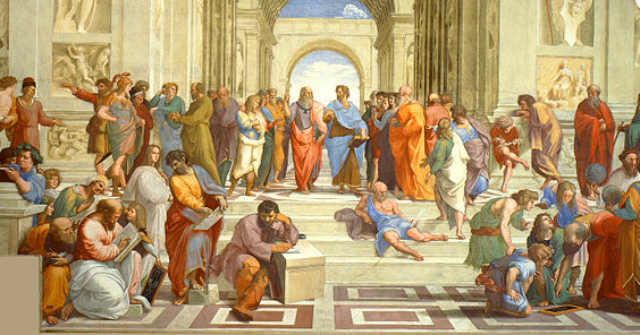By John Voutos
Ancient Greek philosophers provided the foundations for environmentalism and environmental ethics. These ethics are inherent in the history of Western philosophy. The Greek Herald has five facts you should know about environmental ethics in ancient Greek philosophy.
Anthropocentric views | They regarded humans as most important.
Ancient Greek philosophers, particularly pre-Socratic philosophy, suggested a hierarchical structure of nature which placed humankind as central and most important. Plato and Aristotle prominently held this opinion in their respective dialogues Timaeus (360 B.C.) and Generation of Animals (mid-300 B.C.).
Hylozoistic views | They believed all matter has life.
Many ancient Greek philosophers held hylozoistic worldviews. That is, that all matter has life.
Thales, Anaximander, and Anaximenes, in particular, attempted to explain the basic form of substance from a naturalistic perspective, that nature is ‘ensouled’ as an intelligent, living organism.

Holistic interconnectedness | They believed “the whole is more than the sum of its parts.”
Ancient Greek philosophers held a holistic perspective. That is, as Aristotle famously explains in Metaphysics (350 B.C.), that “the whole is more than the sum of its parts.”
Aristotle and Plato particularly viewed the world and each being as mutually interrelated and part of a teleologically organised whole of God’s creation. The holistic perspective is also found in organicism, system theory, and semantic holism.
Human intervention | They didn’t believe human intervention was necessary.
It was in the view of ancient Greek philosophers that human intervention wasn’t considered or needed. Human beings weren’t believed to have a responsibility in preserving or reordering nature. In fact, ancient Greek philosophers commonly put nature at the disposal of humans.
While these views can be interpreted today as “anti-environmental” or “counterproductive”, ancient Greek philosophy emphasises a deep respect for the intrinsic value of nature and Plato’s Laws (from around 300-400 B.C.) tells us that we must respect the environment.
Religious rather than scientific | Religion played an important role.
Ancient Greek attitudes towards the environment were largely religious rather than scientific. For example, Plato considered nature to be planned or designed by a higher power and his Socratic dialogue The Republic (375 B.C.) considered planetary rotation as an instructional image for the human soul.


